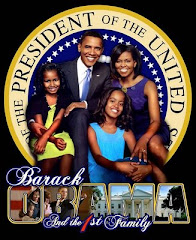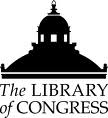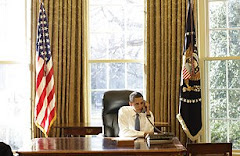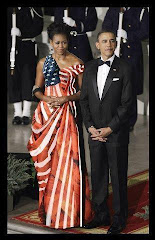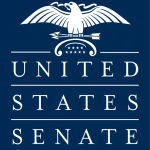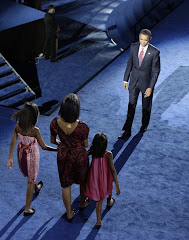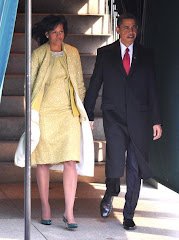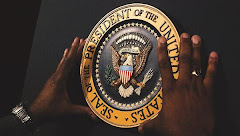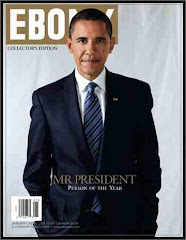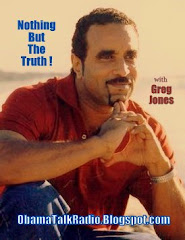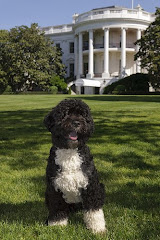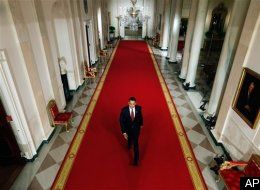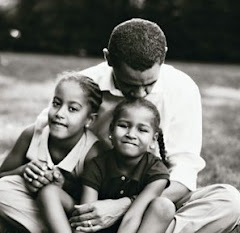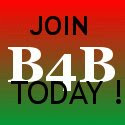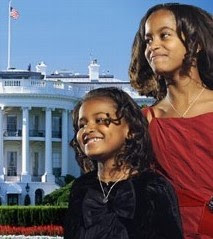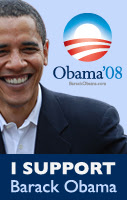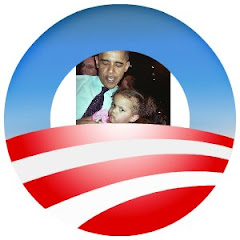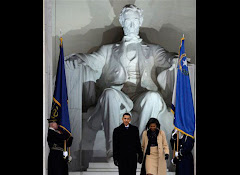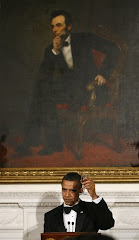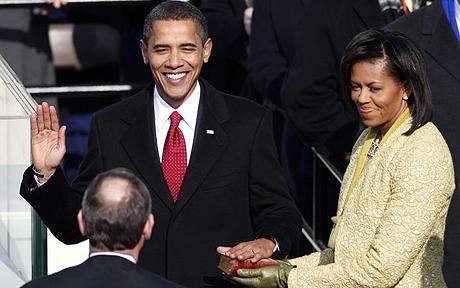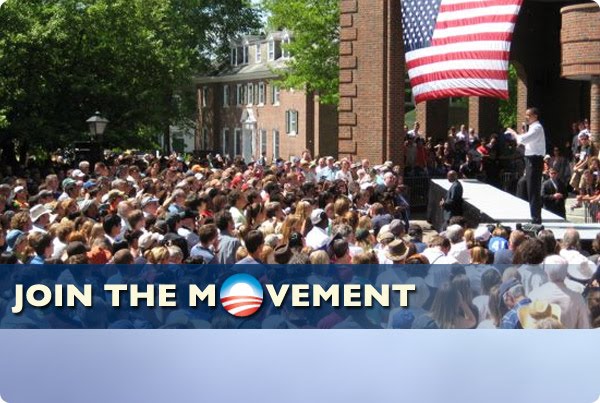
THE WHITE HOUSE
Office of the Press Secretary
__________________________________________________________________________________________________________________
Reaction To President Obama's Speech In Cairo Today
FOR IMMEDIATE RELEASE
June 4, 2009
Listed below is a sample of the reaction to the President’s speech in Cairo today.
GENERAL ANALYSIS
TIME’s Scott McLeod Wrote, “President Obama’s Speech In Cairo Today Is The Most Important Address Ever Given By An American Leader About The Middle East…He Didn’t Arrive Or Depart As A Prophet, But For An American President Treading Into Territory Inhospitable To U.S. Policies, He Won Some New Adherents.” On TIME.com’s blog, Scott McLeod wrote, “President Obama's speech in Cairo today is the most important address ever given by an American leader about the Middle East. As he told 1,000 people at Cairo University and millions more around the world, everything won't be solved by a speech. Yet it was an unprecedented reach-out to Muslims and particularly to the Arab world. Far more than any other U.S. president in the past, he both acknowledged harmful Western policies during the Colonial and Cold War eras and promised an intense personal effort to resolve the region's problems and build a new era based on mutual cooperation and respect. The clear message Obama delivered—in his words, body language and statement of policies-- was that America is determined to be part of the solution in the Middle East. He didn't arrive or depart as a prophet, but for an American president treading into territory inhospitable to U.S. policies, he won some new adherents.” [Scott McLeod, TIME.com, 6/4/09]
Ø McLeod: “What Characterized Obama’s Speech As Something Fresh Was Its Straight Talk.” On TIME.com’s blog, Scott McLeod wrote, “What characterized Obama's speech as something fresh was its straight talk, an apparent attempt to win further political credit by acknowledging past U.S. policies that were detrimental and then to use that credit to demand better attitudes and actions from the Middle East as well. Obama recounted U.S. mistakes after 9/11, such as the invasion of Iraq, the establishment of the Guantanamo prison and use of torture against Muslim prisoners. But he called on Muslims to abandon the stereotype that everything America represents and does is bad, and physically bristled at the notion, still widespread in the Arab world, that the al-Qaeda attack on the U.S. in 2001 was somehow justifiable…The straight talk enabled Obama to glide through a minefield of competing interests. He appealed to governments (and equally to the Arab street) with his strong opposition to Israeli settlements and his demand that the region's leaders accept the two-state solution to the Israeli-Palestinian conflict.” [Scott McLeod, TIME.com, 6/4/09]
Hisham Melhelm, Washington Bureau Chief Of Al-Arabiya TV, Said “On The Whole, He Was Excellent. And I Think People Needed To Hear What The President Articulated Forcefully And Eloquently.” Hisham Melhem, the Washington Bureau Chief of Al-Arabiya, said “I think it was very well-crafted, eloquent. He did a good job infusing history, culture, politics and personal narrative. And I think he boldly discussed some thorny, tough, sensitive issues that sometimes Muslim leaders and Arab leaders don't like to hear and he asked them somewhat to engage in introspection. I think he was very honest with both Israelis and Arabs…He, clearly, defined America's objectives in the war against Al Qaeda and not -- he didn't talk about the war on terrorism in general. He was thoughtful when he talked about democracy and human rights and he did not use the Messianic, metaphysical theological language that his predecessor George Bush used to use. There were no combustible phrases like Islam or fascism…So, on the whole, he was excellent. And I think people needed to hear what the president articulated forcefully and eloquently.” [CNN Transcript, 6/4/09]
AP: Obama’s Approach Was Sweeping And Evenhanded Throughout The Speech. “President Barack Obama offered the world the audacity to hope for peace in the Middle East and a better understanding between the United States and Muslims. Still, a president known for his soaring oratory admitted his words alone would not change a thing. ‘No single speech can eradicate years of mistrust,’ he said. A vast array of knotty issues cloud American relations with the Muslim world, but none rankles like U.S. ties to Israel and massive support for the Jewish state in the heart of the Arab Middle East. In a sharp break with U.S. policy, Obama approached his historic Cairo speech by opening a public rift last month with Israeli Prime Minister Benjamin Netanyahu, publicly demanding that he stop building settlements on the West Bank. The newly elected Israeli leader has refused, leaving him openly on the outs with Washington and in a position that could shorten his tenure at the top of the Jewish state's government. Obama said the U.S.-Israeli bond was ‘well-known’ and ‘unbreakable,’ but that Washington ‘does not accept the legitimacy of continued Israeli settlements.’ Obama's approach was sweeping and evenhanded throughout the speech. In the face of likely criticism at home, the deeply pragmatic American president, a black man whose father and grandfather were Muslim, owned up to serious American mistakes in relations with followers of the Prophet Muhammad. But he warned, recalling the terrorist attacks in the U.S. on Sept. 11, 2001: ‘America can never tolerate violence by extremists." [AP, 6/4/09]
Newsweek: “Barack Obama’s Long Awaited Speech To The Muslim World Delivered On The Promises Of His Advisers. It Was Neither Dramatic Nor Filled With Romantic Pledges.” Katie Connolly of Newsweek wrote, “Barack Obama's long-awaited speech to the Muslim world delivered on the promises of his advisers. It was neither dramatic nor filled with romantic pledges. He tackled thorny issues, but only to a point…Tension soon gave way to approval and applause when President called on Israel to end settlements and emphatically acknowledged Palestine's need for security and prosperity. A section of the speech devoted to women's rights was all well received, with women in the audience cheering.” [Katie Connolly, Newsweek.com, 6/4/09]
Former U.S. Ambassador To Israel Martin Indyk Said “The Speech Represented A Dramatic And Persuasive American Manifesto For A New Relationship With The Muslim World. President Obama Stood His Ground On American Values And Interests But Presented Them In A Package That Should Be Attractive To His Muslim Audience.” Martin Indyk, Senior Fellow and Director, Saban Center for Middle East Policy, wrote: “The speech represented a dramatic and persuasive American manifesto for a new relationship with the Muslim World. President Obama stood his ground on American values and interests but presented them in a package that should be attractive to his Muslim audience…There are two competing narratives in the Muslim World: one from Osama bin Laden and Mahmoud Ahmadinejad that preaches violence, defiance of the international community, and destruction of Israel as the way to achieve justice and dignity; the other that preaches tolerance, compromise and respect for human rights. That is the American way, and President Obama did much today to give it renewed credibility among Arabs and Muslims.” [Brookings.edu, accessed 6/4/09]
Bruce Riedel: “The President Is Right To Take On The Enemies Narrative As That Is Key To Its Defeat.” Bruce Riedel, Senior Fellow at Brookings’ Saban Center, wrote: “One of the most important points Obama made in his speech today was to attack directly the narrative and ideology of al Qaeda. For too long the war of ideas was ceded to al Qaeda. By explaining his view of Islam, his vision of Arab-Israeli peace and other key issues the President took on al Qaeda's argument for terror. It is no accident Usama bin Laden and Ayman Zawahiri issued statements just before Obama spoke--they know the battle for the soul of Islam has now been joined and they are fighting back. The President is right to take on the enemies narrative as that is key to its defeat.” [Brookings.edu, accessed 6/4/09]
Tamara Cofman Wittes (Brookings): “President Obama Today Resoundingly Rejected Those Who Argue That President Bush’s Mistakes Fatally Tainted The Cause Of Democracy Promotion.” Tamara Cofman Wittes, a Senior Fellow, Saban Center for Middle East Policy, wrote: “President Obama today resoundingly rejected those who argue that President Bush's mistakes fatally tainted the cause of democracy promotion. He stood up firmly for democracy and for America's efforts to advance it around the world. President Obama pulled no punches in his address. He was unapologetic in his statement of American interests and in his defense of human rights and liberal values. Obama also stood up for tolerance and pluralism, values whose Muslim proponents are under pressure in many countries -- this is crucial support for those Muslims standing up against Al Qaeda and its ideas.” [Brookings.edu, accessed 6/4/09]
Stephen Grand (Brookings): “This Was A Masterful Speech.” Stephen Grand, Fellow and Director, Brookings Project on U.S. Relations with the Islamic World, wrote: “While no one can expect one speech to eliminate decades of anger, distrust, and mutual suspicion between the United States and the larger Muslim world, this was a masterful speech. With this speech, President Obama created the possibility for what he described as ‘a new beginning.’ It will be up to his Administration in the months and years ahead to flesh out what that means the tangible policies and programs that address the major conflicts roiling the Middle East region and creating divides between the American and Muslim peoples. The president must also find a means of supporting change in Muslim majority societies that face profound crises of governance. Only time will tell if the United States can pursue policies vis-à-vis the Muslim world that live up to it values while at the same time advancing its interests." [Brookings.edu, accessed 6/4/09]
Hady Amr: “President Obama’s Speech In Cairo Was A Resounding Victory For The Power Of America’s Character.” Hady Amr, Fellow and Director of the Brookings Doha Center, wrote: “President Obama's speech in Cairo was a resounding victory for the power of America's character. President Obama evoked political truths, social truths and the word of God through Judaism, Christianity and Islam to speak in such a way that ordinary Arabs and Muslims welcomed the speech with open-hearts. What is even more surprising is that both Israeli advisors (albeit with Labor Party leanings) and Hamas leaders said the speech was a heartwarming and landmark speech with a senior Hamas official comparing Obama to American civil rights leader Martin Luther King. If there was ever a speech by an American president that could get ordinary Arabs and Muslims, together with their leaders, to look in the mirror and address their problems, this was it." [Brookings.edu, accessed 6/4/09]
Israeli Policy Forum Said It “Strongly Applauds President Obama’s Historic, Bold And Wide-Ranging Speech.” “As did the audience at Cairo University, Israel Policy Forum strongly applauds President Obama's historic, bold and wide-ranging speech today calling for a ‘new beginning between the United States and Muslim around the world…’ [The] Israel Policy Forum is heartened that President Obama is beginning to engage in the kind of sustained, tough U.S. diplomacy that will be needed in order to overcome the challenges currently facing a two-state solution and peace and security in the Middle East.” [Jewish Telegraphic Agency, 6/4/09]
Robert Kaplan (The Atlantic): The Speech’s “Overall Effect Was Magnificent.” “One can take apart President Barack Obama’s speech to the Muslim world delivered at Cairo University today, and subject its sentences to all manner of criticism and analysis, but its overall effect was magnificent. It employed the forward-looking optimism of the American Dream in the service of the hopes and frustrations of youth throughout the Islamic cultural continuum. It also restored the kind of public relations magic that America possessed overseas in the years immediately after World War II. Obama is no doubt more popular among Muslim youth than many of their own leaders…He did all this with a polished delivery – pronouncing correctly all Arabic and other foreign names – and without generally apologizing for America. He said America’s commitment to Afghanistan will not falter; that Iraq was better off without Saddam Hussein; and that America’s bond with Israel is unbreakable. He said, in an obvious reference to the rants of Iranian President Mahmoud Ahmadinejad, that Holocaust denial and the promotion of stereotypes and anti-Semitism are wrong. Indeed, he noted that the important question for Iran is not what it is against, but what kind of a future it wants to build. By making America’s historical vision of a future city on a hill synonymous with that of his young Muslim audience, he instantly put Iran on the defensive. We live in an electronic media age, and public relations is now a crucial part of the strategic battlespace. In Cairo, Obama went a long way toward reclaiming that territory…He thus comes armed with credentials for the battle against extremism. And as he also reminded his audience, he is merely one example of a newly diverse America, in which seven million Muslim citizens enjoy incomes and educational advantages higher than the national average. [Robert Kaplan, The Atlantic, 6/4/09]
George Mason Prof. Michael Fauntroy Said Obama’s Speech “Was An Outstanding First Step In Attempting To Bridge The Gulf That Exists Between The U.S. And Muslims Around The World.” “President Barack Obama's restrained part-olive branch, part-truth telling 55-minute speech at Cairo University was an outstanding first step in attempting to bridge the gulf that exists between the U.S. and Muslim's around the world. While it will take years, if not decades, to create a more peaceful, loving, and just relationship, it is clear that President Obama understands that part of the world in a way that far exceeds those of past presidents. His willingness to speak uncomfortable truths to Muslims and Americans reveals a kind of engagement with the Muslim world that will likely benefit us all.” [Politico, 6/4/2009]
Harvard Prof. Joseph Nye Said The Speech Was “A Great Investment In Our Soft Power…I Am Reminded Of JFK And Reagan’s Capacity To Project American Ideals. Harvard Prof. Joseph Nye said, “A great investment in our soft power. As I read this on my Blackberry in Heathrow airport, I am reminded of JFK and Reagan's capacity to project American ideals. This is a great investment in our soft power.” [Politico, 6/4/2009]
CNAS VP Kristin Lord Said “The President Deserves An A+ For This Exceptional Speech.” Kristin Lord, Vice President and Director of Studies at the Center for A New American Security said, “The president deserves an A+ for this exceptional speech. He spoke plainly about the complex issues that divide the United States and many of the world’s Muslims -- but in frankly acknowledging their complexity, showed a path forward. He demonstrated deep respect for Islam, but called on Muslims to address deficits in religious tolerance, human rights, and democratic governance. He offered U.S. assistance in promoting education and innovation, but called on Muslim societies to invest in those objectives. He grounded his speech in the principles of Islam, but also in the principles of Judaism and Christianity… the standing ovation and chants of “Obama” from those in the audience suggest that the speech will be well received by the audience that the President ultimately intended to reach.” [Politico, 6/4/2009]
Princeton Prof. Melissa Harris-Lacewell Said Obama’s Speech “Offered A Sweeping Vision Of America, Of The World, And Of The Possibilities For Equality.” “President Obama's Cairo speech was reminiscent of his important address on American racial politics delivered in Philadelphia during the Democratic primaries. Both speeches offered nuanced historical narratives that insisted on holding accountable all parties while refusing to demonize any one side. The President spoke openly about American culpability in mid-East conflicts, but denounced the tactics of extremist terrorism aimed a victimizing the innocent. Both speeches reflected President Obama's deep commitment to democratic deliberation as a source of conflict resolution. He believes that through discussion and careful, empathetic listening we can find commonalities where there seems to be only difference. He denounced violence as a tool of change and instead called for the harder and more courageous work of diplomacy…I believe President Obama's Cairo speech offered a sweeping vision of America, of the world, and of the possibilities for equality.” [Politico, 6/4/2009]
Harvard Prof. Stephen Walt Said Obama’s “Willingness To Confront A Set Of Complex And Challenging Issues Head-On And To Speak Plainly And Eloquently Was Remarkable.” “I would give it an A- overall, but I’m a tough grader…Overall, his willingness to confront a set of complex and challenging issues head-on and to speak both plainly and eloquently was remarkable.” [Politico, 6/4/2009]
Republican Strategist Bradley Blakeman Gave The Speech “An A-.” “The President hit all the major points of the conflict between the Muslim world and the West. He set forth the areas of tensions, he stated America's beliefs and intentions, he held out hope for progress, and challenged the parties to leave the past behind and work toward attainable and sustainable goals of peaceful co-existence.” [Politico, 6/4/2009]
Spelman History Professor Jelani Cobb Said “This May Well Be The Most Important Foreign Policy Speech Of The Post-Cold War Era.” “This may well be the most important foreign policy speech of the post Cold War era. I would give it an A. There were any number of statements which individually could have been taken as significant. In its sum total it was quite remarkable. We know the structural hallmarks of an Obama speech by this point -- the balance of poetry and policy, making use of his unique biography as an advantage, offering the panoramic view of a complex problem, arguing that we have been mired in false dichotomies in approaching the problem and then offering common sense, pragmatic, non-ideological alternatives spiced with just enough idealism to spark the imagination of young people. For all that, this may have been the most brilliant iteration of that approach…I believe we will be studying this speech for years if not decades to come.” [Politico, 6/4/2009]
Amanpour: “This Was The Beginning Of A…Period Of Building Between The United States And The Islamic World.” Christiane Amanpour said,“Well, that is the big question. You know, many have said, an you saw the warm welcome he got there. Analysts were saying before this that he's bound to get a warm welcome. People like Obama, the person. They are still very skeptical about U.S. foreign policy. He injected a note of even-handedness back into the Israeli-Palestinian process. He also talked about respect for the Islamic world. He also talked about how political pursuits should go in there but using Islam in its traditional way, respecting Islam. You've heard the blogger who said she was so pleased about that, that he didn't dismiss the idea of religion but respected their tradition. But the real issue is how is it going to play out and what kind of policies are going to be pursued and that is what everybody is waiting for, because it is exceptionally difficult. This was the beginning of a, I think, a period of building between the United States and the Islamic world.” [CNN Transcript, 6/4/09]
Michael Crowley Called Obama’s Address In Cairo “His Most Elegant Speech Yet…To See Him Unfold His Biography, To Cut Such An Unfamiliar Profile On The World Stage, Is To Appreciate How Much America Will Benefit From Presenting This New Face to The World.” Michael Crowley wrote, “One year ago today, Barack Obama clinched the Democratic Party's presidential nomination... To see him unfold his biography, to cut such an unfamiliar profile on the world stage, is to appreciate how much America will benefit from presenting this new face to the world.” [New Republic, 6/4/09]
Yousef Munayyer, A Policy Analyst For The Arab-American Anti-Discrimination Committee, Gave Obama “An A.” “The President’s speech was not so much an address to the Muslim world as it was one about the Muslim world for a global audience- including Americans. In a message only he could deliver, to a world hungry for a new era of American leadership and cooperation, President Obama was able to navigate the minefield of Middle East politics by simply being candid…He may not have introduced new policy in this speech, but he laid the foundation for a new expansive debate on various issues in the relationship between the US and the Muslim world which will be needed to create the political space necessary - here and abroad - to implement policies which will strengthen this relationship…He gets strong marks for the speech and extra credit for the valiant effort pronouncing Arabic words. Overall an A.” [Politico, 6/4/2009]
REACTIONS FROM THE MIDDLE EAST
CNN: Majority Of The Reaction From The Arab World “Was Positive With People Discussing How Energized They Are By Obama’s Positive Attitude.” CNN reported, “It was magical inside the great hall of Cairo University, said Emad el-Din Adib, one of the Middle East's famous media personalities. He was one of the 3,000 people invited to listen to President Obama's speech in person. Adib told an Egyptian TV show, ‘President Obama's charisma is unquestionable, but it's the substance and depth of his speech that made the hall roar.’ Away from the hall, on social networking web sites the reaction was more diverse. Mina al-Oraibi, a columnist with the London-based Asharq Al-Awsat, said: ‘Obama mentioned the word peace 29 times and never mentioned terrorism.’ She called his choices ‘smart’ and concludes that peace is clearly ‘his priority.’ This makes him ‘the radicals' worst nightmare’ she said. A very excited anchorwoman on Egypt TV told her guests and viewers that she counted 30 applause breaks during Obama's discourse. She boasted as soon as the speech was over: ‘They were genuine cheers to a very good speech.’ Her guests agreed that the speech was well crafted, clear and ‘honest’ especially on the relationship between the U.S. and Israel…Still the majority of the reaction was positive with people discussing how energized they are by Obama's positive attitude and what Ali Dhamash from Jordan described as ‘understanding of what it means to be Muslim and appreciating that.’ Minutes after Obama finished his historic speech, CNN correspondent Ben Wedeman's phone rang. It was Walid Batouti, the owner of an Egyptian tour company, and normally a skeptic of U.S. policy in the Middle East. ‘Yes, we can!’ he shouted, echoing the campaign slogan that brought Obama to power last year. ‘I've had my problems with the U.S. in the past, but it was a great speech, and we really appreciated it,’ he said. Reza Aslan, the best-selling Iranian-American author of ‘No God But God,’ was also a doubter before the speech. But his first response was a single word: ‘Wow!’ ‘If the purpose of the speech was to forge a new beginning between the U.S. and the Muslim world, he did that,’ he told CNN by phone from London.” [CNN.com, 6/4/09]
AP: “Obama Impressed Muslims With His Humility And Respect.” “Obama impressed Muslims with his humility and respect and they were thrilled by his citing of Quranic verses…In a traditional Ramallah coffee shop, middle-aged men watched the speech on TV while they puffed on cigarettes or water pipes. Some even put their card and backgammon games on hold to follow along. Customer Basel Abul Abed said it was a turning point…Another customer, 56-year-old Mohammed Sbeih, said: ‘His point in the speech of recognizing the Palestinians suffering is a positive point. But if the Palestinians have to abandon violence, Israel will have to as well…’ ‘It was very good of him to address Muslims by quoting from holy Quran, something I did not expect in his speech,’ said Osama Ahmed Sameh, a 45-year-old Iraqi government employee at the Ministry of Higher Education. In Egypt, Shahinda al-Bahgouri, a 20-year-old student at Cairo University where Obama spoke, was also impressed. ‘All we want as Muslims is for there to be a partnership,’ she said. ‘And he was seriously humble. Humility is important for us.’ In Syria, political analyst Imad Shouaibi said: ‘It is a speech with a different language from what we used to hear. This is a positive thing.’ Sheik Muhammad al-Nujaimi, member of the committee in charge of rehabilitating Saudi militants, said he is going to tell the militants Muslims should offer help to the new American administration and reciprocate its overtures. ‘Americans are a civilized people. The previous president didn't represent them. Today, there's a new president who's using a new language and wants a new world in place. We should give him a chance and not open up a new front that will lead to the failure of his plan.’ Zahid Husain Gardezi, a 50-year-old landowner in the Pakistani city of Multan, was pleased by Obama's warmth. ‘It is the first time I have ever heard such affectionate words from an American for Muslims,’ he said…’ Political commentator Ali Reza Khamesian said Obama's acknowledgment of Iran's right to produce nuclear energy for peaceful purposes was ‘a step forward for better ties with the United States." [AP, 6/4/09]
WAPO: Egyptians Praised President Obama’s Speech. The Washington Post reported, “The fact that Barack Obama chose Egypt as the location for Thursday's address to the Muslim world endeared him to the locals, who are always proud to host a foreigner and even prouder when it shows off their history. The fact that he came to downtown Cairo, instead of heading to the Sinai beach resorts where diplomatic gatherings are often held, told them he was serious about connecting on a personal level. And when he started sprinkling his speech with words from the Koran, and balanced support for Israel with a strong call for a Palestinian state, the deal was closed. ‘I didn't expect him to go this far’ in confronting the region's core problems, said Tarek Ali, 44, a driver for a government agency. ‘He really seems to want to move forward.’ That initial conclusion seemed unanimous among the crowd of men gathered at a local coffee shop to watch Obama's Thursday speech…In Cairo, however, the details of Obama's speech were almost less important than the official build-up and symbolism around it. After years in which the U.S. was linked here almost exclusively to violence in Muslim countries and support for Israel, suddenly the state broadcasting service was beaming uplifting scenes of the American and Egyptian flags flying side by side, and Obama's smiling face superimposed over graphics of the Pyramids and local landmarks. A small icon -- the Egyptian and American flags woven together in a yin and yang -- was kept on the screen throughout the morning.” [Washington Post, 6/4/09]
Arab Students Praised Obama’s Speech:
Ø Sulafah Al Shami, A Jordanian Student, Said It Was “Great To See An American President Advocating World Diplomacy And Partnership Instead Of Reinforcing The Image Of America As An Overpowering Superpower Who Everybody Should Submit To.” Sulafah Al Shami, a 19-year-old Jordanian, said “The speech that President Barack Obama gave at Cairo University was very interesting and refreshing. It was definitely a big break from the tone and style that President Bush employed in addressing the Arab world. The speech was balanced and not aggressive as President Obama declared that his first and foremost interest is to serve and protect his people but at the same time he underlined world peace and cooperation. It is great to see an American president advocating world diplomacy and partnership instead of reinforcing the image of America as an overpowering superpower who everybody should submit to.” [New York Times, 6/4/09]
Ø Ingry Hassieb, A 19-Year Old Egyptian Student, Said “It Was A Great Speech, It Was A Great Gesture…[It] Gave Me Hope That Change Can Happen, Especially By Collaboration And By Seeing Common Ground And Interest.” Ingy Hassieb, a 19-year-old Egyptian, said, “I like his positivity — the way he addressed the pros of Islam instead of the cons was a great and very logical way to start off. The way Islam is portrayed in the media right now is very one-sided and President Obama managed to acknowledge the distinction between extremism and Islam…What’s more was his quoting the Koran in the beginning, middle, and end of his speech. It’s obvious that the president is more than just an eloquent speaker, but a careful and thoughtful leader…As an Egyptian, I am, location-wise, really close to the conflict, and as a human being, I see that Israeli actions are a violation of the sovereignty of another people and another state. However, I agree with the U.S president, there must be compromise and there must be sacrifice, as much as I would like to see Palestinians living freely within their own land, it does seem that a two-state solution is the best option, but both sides must be willing to compromise in order to achieve peace…It was a great speech, it was a great gesture, and I think that Egyptians will be ready to welcome President Obama again in the future…But the speech gave me hope that change can happen, especially by collaboration and by seeing common ground and interest. Even if it is a slow process, it is not impossible, even change here in Egypt.” [New York Times, 6/4/09]
Ø Samura Attalah, A Palestinian Student, Said Obama’s “Reference To Koran Islamic History All [Through] The Speech Will Make Citizens Realize That The New Administration Is More Well-Informed On This Part Of The World Than The Previous [One], And With Better Knowledge Comes More Significant Change.” Samura Atallah, 20, a Palestinian of Jordanian descent, said, “Obama’s position on the Israeli-Arab conflict was moderate and tailored to both sides; a child, whether Palestinian or Israeli, has every right to a decent life. The two-state solution and pushing to stop the ongoing settlements was a substantial point, one that is yet novel to Palestinians in regards to recent U.S. foreign policy. I think this strongly illustrates the likelihood of peacemaking. Obama’s stance on free will was impressive; it’s not what one chooses but the ability to choose what one pleases that matters. And by making the veil example, he proved that there is no “right” or “wrong” to the choices that one makes as long as they are one’s own. I also think by doing so he made a clear distinction between France’s and Turkey’s approaches to what the veil means and that of the U.S; after all, the U.S was built on the freedom of choice and what one wears is simply a choice. Furthermore, tying choices to universal human rights, namely education, made the impression that with freedom lies responsibility, and that I greatly respect. I like the fact that Obama dedicated a significant chunk to addressing women and their rights; after all, feminism though diverse in its discourse, exists everywhere, whether in this part of the world or abroad. The reference to Koran Islamic history all [through] the speech will make citizens realize that the new administration is more well-informed on this part of the world than the previous [one], and with better knowledge comes more significant change.” [New York Times, 6/4/09]
McLeod: “Obama’s Speech Drew Repeated Applause From The Audience And “He Also Won Plaudits From Many Citizens And Earned Frowns From Autocrats With His Frank, Forceful Call For Democracy, Human Rights And Women’s Rights In Arab Countries.” On TIME.com’s blog, Scott McLeod wrote, “The audience responded to Obama's fine rhetoric and frequent quotations from the Koran with repeated applause. At the end as he stood on the stage and waved, a group of Egyptian students in the balcony rhythmically began chanting, ‘He's our man! He's our man!’ When Obama spoke about democracy during the speech, one man in the audience shouted, ‘We love you!’ But the audience also responded well to Obama's specifics, including a statement opposing Israeli settlements in the occupied Palestinian West Bank—an unusually strong display of criticism of America's ally, given that it was delivered from the heart of an Arab capital…He also won plaudits from many citizens and earned frowns from autocrats with his frank, forceful call for democracy, human rights and women's rights in Arab countries—and a warning to Arab regimes not to use the conflict with Israel to divert attention from needed domestic reforms…Obama came to Cairo as part of the ‘conversation’ with the Muslims that he started in his inaugural address, when he envisioned a new relationship based on mutual interest and respect. ‘This cyrcle of suspicion and discord must end,’ he declared at Cairo University. Without a doubt, he now has the Islamic world listening.” [Scott McLeod, TIME.com, 6/4/09]
Palestinians Reacted Positively To Obama’s Speech. In the Palestinian territories, Obama's speech was watched more avidly. Broadcast on Gulf, Egyptian and Jordanian satellite-TV channels, Palestinians in coffee houses and restaurants were riveted by Obama's words. Fouad, a teacher, says, ‘I was emotionally moved by Obama's delivery. I loved his grasp of Islamic history.’ A Bethlehem mother, Raheeda Hamad, says she approved of Obama's message of a global partnership and of the necessity for equal education for women. At Nablus University, political scientist and Islamic scholar Abdul Sattar Qasim says, ‘His speech was very close to the heart. He has a way of speaking directly to the people, something other leaders have forgotten.’” [TIME.com, 6/4/09]
Daoud Kuttab, A Palestinian Journalist and Former Journalism Professor At Princeton, Said Obama “Clearly Won Over The Hearts And Minds Of Many People, Who Have So Far Rejected America, By Being Empathetic – Warm But Honest.” Daoud Kuttab, a Palestinian journalist and a former professor of journalism at Princeton University, wrote, “President Barack Hussein Obama clearly won over the hearts and minds of many people, who have so far rejected America, by being empathetic — warm but honest. Politically President Obama spoke forcefully against violent religious extremists without ever mentioning the word ‘terror’ or ‘Islamic extremists.’ While putting the Middle East conflict second to the post 9/11 wars, he gave the Palestinian-Israeli conflict the same weight as he did the combined wars in Iraq and Afghanistan. [New York Times, 6/4/09]
REACTIONS FROM MIDDLE EAST OFFICIALS
Director Of The Israeli Government Press Office Said “I Don’t Think There’s Anything We Disagree With Here.” The AP reported, “In his speech aimed at healing rifts between the U.S. and the Muslim world, Obama devoted significant time to the Israeli-Palestinian conflict. He asked Muslims to accept Israel's right to exist as a nation that came about after centuries of persecution and the Nazi genocide of six million Jews…’All in all, it's not bad. I don't think there's anything we disagree with here," said Danny Seaman, the director of Israel's Government Press Office.’” [AP, 6/4/09]
Abbas Spokesman Said Obama’s Comments On The Israeli-Palestinian Conflict “Is An Important Step Under New Beginnings…It Shows There Is A New And Different American Policy Toward The Palestinian Issue.” The AP reported, “Palestinian President Mahmoud Abbas, a Hamas rival, welcomed Obama's words. ‘The part of Obama's speech regarding the Palestinian issue is an important step under new beginnings,’ his spokesman Nabil Abu Rdeneh said. ‘It shows there is a new and different American policy toward the Palestinian issue.’” [AP, 6/4/09]
Egyptian Foreign Minister Said He Liked “Everything” In Obama’s Speech. On TIME.com’s blog, Scott McLeod wrote, “When I asked him what he liked about the speech, Egyptian Foreign Minister Ahmed Abul-Gheit, who personally welcomed Obama at Cairo International Airport a few hours earlier, told me: ‘Everything.’” [Scott McLeod, TIME.com, 6/4/09]
CLICK HERE to view full video of President Obama's Historic Speech
